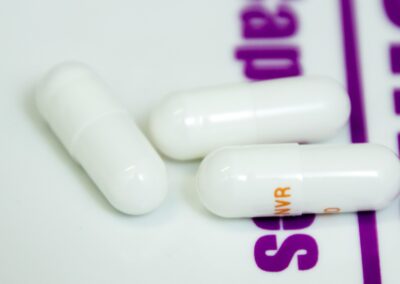The Role of Digital Twins in Enhancing Personalized Medicine
Understanding Digital Twins in Healthcare
Digital twins in personalized medicine are transforming how we approach drug safety and efficacy. Digital twins are virtual replicas of physical entities, and in the context of healthcare, they represent individualized models of patients. These models are built using data from various sources, including genetic information, medical history, and real-time health monitoring.
The primary advantage of using digital twins in personalized medicine is their ability to simulate the impact of different drugs on an individual’s unique physiology. By leveraging advanced data analytics and machine learning algorithms, digital twins can predict how a patient will respond to specific medications, thereby identifying potential adverse drug reactions before they occur. This predictive capability is crucial for tailoring treatments to individual needs and minimizing risks.
In countries like Saudi Arabia and the UAE, where healthcare systems are rapidly advancing, the integration of digital twins into personalized medicine represents a significant leap forward. Cities such as Riyadh and Dubai are increasingly investing in cutting-edge technologies to enhance healthcare outcomes. Digital twins offer a promising solution for improving drug safety and ensuring that personalized treatments are both effective and safe for patients.
Predicting Adverse Drug Reactions with Digital Twins
Digital twins in personalized medicine provide a powerful tool for predicting adverse drug reactions (ADRs). Traditional methods of predicting ADRs often rely on statistical models and clinical trial data, which may not fully capture the complexities of individual patient responses. Digital twins, however, offer a more dynamic and individualized approach.
By simulating how different drugs interact with a patient’s virtual twin, healthcare providers can anticipate potential side effects and adjust treatment plans accordingly. For example, if a digital twin indicates a high likelihood of a severe reaction to a particular drug, alternative therapies can be considered. This proactive approach helps prevent adverse reactions and enhances the overall safety of medical treatments.
The application of digital twins in predicting ADRs is particularly valuable in the context of complex diseases and polypharmacy, where patients are often prescribed multiple medications. By analyzing the interactions between different drugs and the patient’s unique biological profile, digital twins can provide insights into potential drug-drug interactions and their effects. This comprehensive analysis supports more informed decision-making and personalized treatment strategies.
Implementing Digital Twins in Personalized Medicine
Implementing digital twins in personalized medicine involves several key steps and considerations. Firstly, accurate and comprehensive patient data is essential for creating reliable digital twins. This data includes genetic information, lifestyle factors, and real-time health metrics. Advanced data integration and analytics platforms are used to build and maintain these virtual models.
Secondly, the use of artificial intelligence and machine learning plays a crucial role in enhancing the predictive capabilities of digital twins. AI algorithms analyze vast amounts of data to identify patterns and make predictions about drug responses. Generative AI models, in particular, can simulate a wide range of scenarios and outcomes, providing valuable insights into potential ADRs and treatment efficacy.
Moreover, collaboration between healthcare providers, technology developers, and regulatory bodies is essential for the successful integration of digital twins into personalized medicine. Ensuring data privacy and security, as well as addressing ethical considerations, are important aspects of this collaboration. By working together, stakeholders can leverage the full potential of digital twins to improve patient outcomes and advance the field of personalized medicine.
Strategic Benefits for Healthcare Systems and Patients
Enhancing Drug Safety and Efficacy
The integration of digital twins in personalized medicine offers substantial benefits for drug safety and efficacy. By providing a more precise understanding of how individual patients will respond to medications, digital twins help to avoid adverse drug reactions and improve overall treatment outcomes.
For healthcare systems in Saudi Arabia and the UAE, adopting digital twin technology can lead to more effective and personalized treatments. This approach not only enhances patient safety but also optimizes the use of healthcare resources. By predicting potential ADRs and tailoring treatments accordingly, healthcare providers can reduce the likelihood of complications and improve patient satisfaction.
Additionally, the ability to simulate various treatment scenarios and outcomes allows for more informed decision-making. Healthcare professionals can evaluate different therapeutic options and choose the most appropriate one based on the patient’s virtual twin. This level of precision and personalization represents a significant advancement in the field of medicine and supports the overall goal of delivering high-quality healthcare services.
Supporting Innovation and Advancements in Healthcare
The application of digital twins in personalized medicine is driving innovation and advancements in healthcare. As technology continues to evolve, digital twins offer new possibilities for research and development. Pharmaceutical companies and research institutions can utilize digital twins to explore novel drug formulations, test their effectiveness, and identify potential side effects before clinical trials.
Furthermore, digital twins contribute to the advancement of personalized medicine by providing insights into the genetic and environmental factors that influence drug responses. This knowledge supports the development of more targeted therapies and enhances our understanding of complex diseases. As a result, healthcare systems can offer more precise and individualized treatments, ultimately improving patient outcomes and advancing medical science.
In conclusion, the integration of digital twins into personalized medicine represents a transformative shift in healthcare. By leveraging advanced sensor technology and AI, digital twins enable more accurate predictions of drug responses and adverse reactions. This innovation not only enhances drug safety and efficacy but also supports the ongoing advancement of personalized medicine, leading to improved patient outcomes and a more effective healthcare system.
—
#DigitalTwins #PersonalizedMedicine #AdverseDrugReactions #AIinHealthcare #ModernTechnology #GenerativeAI #SaudiArabia #UAE #Riyadh #Dubai #Blockchain #ExecutiveCoaching #ProjectManagement























